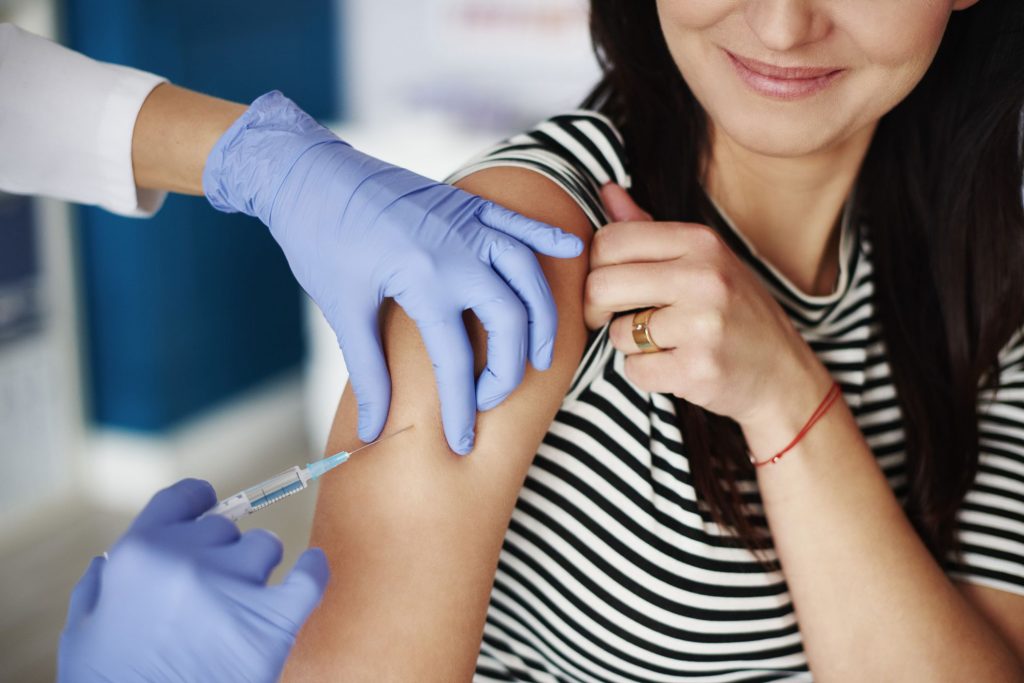-
by admin
Injection
The contraceptive injection (Depo-Provera, Sayana Press, or Noristerat) releases the hormone progestogen into your bloodstream to prevent pregnancy.

At a glance: the contraceptive injection
- If used correctly, the contraceptive injection is 99% effective. This means than 1 woman in 100 who use the injection will become pregnant in a year.
- In real world use about 3 women in 100 become pregnant in a year because people forget to get the next injection (97% effective).
- The injection lasts for eight, 12 or 13 weeks (depending on the type), so you don’t have to think about contraception every day or every time you have sex.
- It can be useful for women who might forget to take the contraceptive pill every day.
- It can be useful for women who can’t use contraception that contains oestrogen.
- It’s not affected by medication.
- The contraceptive injection may provide some protection against cancer of the womb and pelvic inflammatory disease.
- Side effects can include weight gain, headaches, mood swings, breast tenderness and irregular bleeding. The injection can’t be removed from your body, so if you have side effects they’ll last as long as the injection and for some time afterwards.
- Your periods may become more irregular or longer, or stop altogether (amenorrhoea).
- It can take up to one year for your fertility to return to normal after the injection wears off, so it may not be suitable if you want to have a baby in the near future.
- Using Depo-Provera affects your natural oestrogen levels, which can cause thinning of the bones.
- The injection does not protect against sexually transmitted infections (STIs). Use condoms as well as the injection, to protect yourself against STIs.

How the injection works
There are three types of contraceptive injections in the UK:
- Depo-Provera – this lasts for 12 weeks and is usually given by a health professional into a muscle in your bottom, although sometimes may be given in a muscle in your upper arm.
- Sayana Press – this lasts for 13 weeks, is given under the skin (subcutaneously) in your abdomen or thigh and you would normally learn to do this yourself.
- Noristerat – this lasts for eight weeks and is less frequently used. It’s usually given by a health professional into a muscle in your bottom, although sometimes may be given in a muscle in your upper arm. It is usually used for short periods of time – for example, if your partner is waiting for a vasectomy.
The contraceptive injection steadily releases a progestogen hormone into your bloodstream. Progestogen is similar to the natural hormone progesterone, which is released by a woman’s ovaries.
The continuous release of progestogen:
- stops a woman releasing an egg every month (ovulation)
- thickens the mucus from the cervix (neck of the womb), making it difficult for sperm to pass through to the womb and reach an unfertilised egg
- makes the lining of the womb thinner, so that it is unable to support a fertilised egg
The injection can be given at any time during your menstrual cycle, as long as you and your doctor are reasonably sure you are not pregnant.
When it starts to work
If you have the injection during the first five days of your cycle, you will be immediately protected against pregnancy.
If you have the injection on any other day of your cycle, you will not be protected against pregnancy for up to seven days. Use condoms or another method of contraception during this time.
After giving birth
You can have the contraceptive injection at any time after you have given birth, if you are not breastfeeding. If you are breastfeeding, the injection will usually be given after six weeks, although it may be given earlier if necessary.
- If you start injections on or before day 21 after giving birth, you will be immediately protected against becoming pregnant.
- If you start injections after day 21, you will need to use additional contraception for the following seven days.
Heavy and irregular bleeding is more likely to occur if you have the contraceptive injection during the first few weeks after giving birth.
It’s safe to use contraceptive injections while you are breastfeeding.
After a miscarriage or abortion
You can have the injection immediately after a miscarriage or abortion, and you will be protected against pregnancy straight away. If you have the injection more than five days after a miscarriage or abortion, you’ll need to use additional contraception for seven days.